?The Prophet’s Birthday: How do Islamic schools of thought differ about it
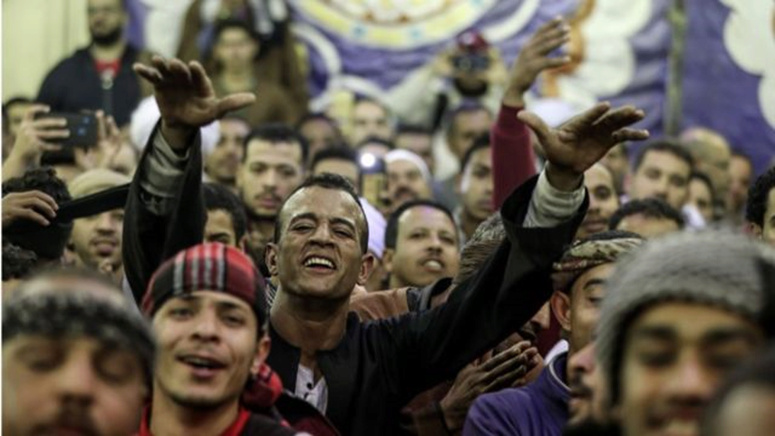
From the celebrations of the Prophet’s birthday in the Egyptian capital, Cairo, in 2019
Decorations and lights, sweets and popular foods, praise and remembrance sessions, flags and candle processions... In Arab cities and villages, from Morocco to the East, people are accustomed to celebrating the Prophet’s birthday every year, in many ways.
Since the celebration is firmly established in popular traditions as a pleasant occasion, the question is renewed every year about the opinion of the jurisprudential schools of thought regarding it, whether it is permissible or forbidden.
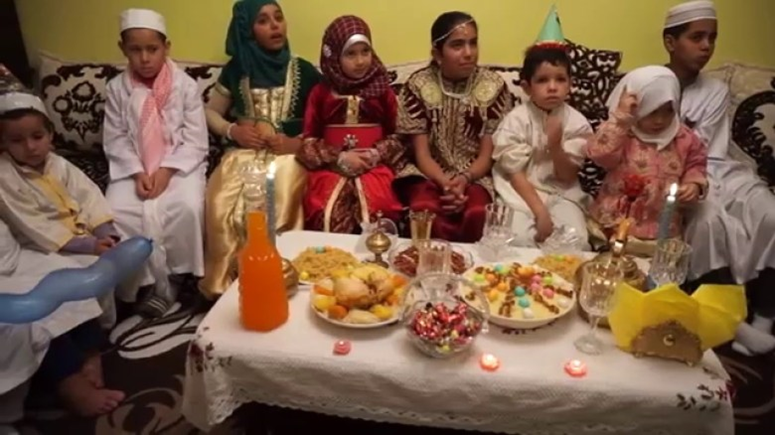
As in many Islamic issues, jurisprudence scholars do not agree on one direction in approaching the celebration of the Prophet’s birthday. Even the date of the birth of the Prophet Muhammad is a source of disagreement between Sunnis and Shiites.
It is true that most references tend to the opinion that he was born in the month of Rabi’ al-Awwal according to the Hijri calendar, but the Sunnis celebrate the anniversary on the 12th of Rabi’ al-Awwal, while the Shiites celebrate it on the 17th of the month. Therefore, the entire month of Rabi’ al-Awwal is considered a month of celebration.
This disagreement in history was the reason for Ruhollah Khomeini’s call for what was called Islamic Unity Week, between the dates of the celebration, starting in 1981, as a means of bringing Sunnis and Shiites closer together.

A Sufi celebration in the Kurdish city of Akre in Iraq, on the occasion of the birth, in 2020
Biography literature indicates various details about the birth of the Prophet, the most proven of which is that he was born on a Monday, because when he was asked about the reason for his fasting on Monday, he said that it was the day of his birth.
References also tend to say that he was born in the year of the elephant, that is, between the years 570 and 571 AD, which is the year named in reference to the attack of the ruler of Yemen, Abraha al-Habashi, on Mecca, and his attempt to destroy the Kaaba, in a campaign in which elephants were used, according to the prevailing narrative.
It is also known that the Prophet lived an orphaned childhood, as he was born after the death of his father, Abdullah bin Abdul Muttalib, then his mother, Amna bint Wahb, died when he was young, so he grew up in the care of his grandfather, Abdul Muttalib, who sponsored him, and then in the care of his uncle, Abu Talib, after the death of his grandfather.
The prevailing narratives also say that Abdul Muttalib was the one who named his grandson Muhammad, and it was not a common name among the Arabs, and the grandfather wanted it to mean praise, and because he wished that his grandson would be praised in heaven and earth.
Religious authorities say that celebrating the Prophet’s birthday was not a common thing in the early years of Islam, and it did not turn into a tradition until the fourth century AH.
The beginning of the celebration of the birth of the Prophet is attributed to the Fatimid Caliph Al-Muizz li-Din Allah after his entry into Egypt in the year 969 AD. Historical references believe that launching organized celebrations of the birth of the Messenger and a number of his family was a means for that caliph to get closer to the Egyptians, through public events filled with joy.
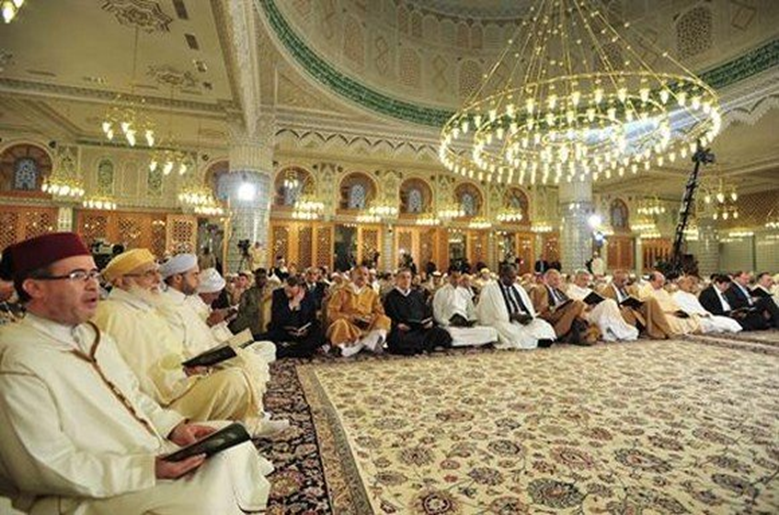
With the change of government and the succession of Islamic disputes, the celebration of the birthday would fade and then return, according to the priorities of the authority. Thus, the Ayyubids banned it, then the Mamluks allowed it, and so on, until it turned into a Sufi tradition during the reign of Muhammad Ali Pasha.
Sufi orders are the Islamic sects most concerned with commemorating the Prophet’s birthday, and the births of righteous saints in general. These celebrations are among the established traditions in Egypt, where there is a wide range of Sufi movements, with a variety of expression methods, including chanting, dhikr circles, and processions.
Despite the various Sufi orders, they attach great importance to remembering birth and death, as a way to glorify the Prophet and the saints, ask for their intercession, and thank them for the blessings. Expressing feelings of joy and sadness in prayer and remembrance is a means of achieving a state of spiritual serenity sought by those who follow the paths.
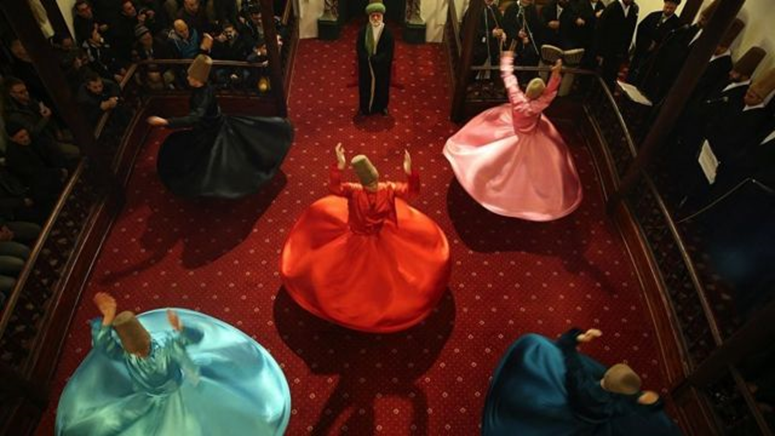
From the celebrations of the Prophet’s Birthday in the Turkish city of Bursa in 2016
In contrast to Sufism, Salafi scholars, led by the Saudi religious scholar Abdul Aziz bin Baz (1912-1999), adopt the view that celebrating the Prophet’s birthday is heresy.
Ibn Baz believes that Sharia did not indicate anything that allows celebrating the birthday, because the Prophet did not celebrate it, nor did the Companions, and therefore it is an innovation. In his opinion, God has compensated Muslims for all special occasions, namely Eid al-Fitr and Eid al-Adha, in which there are sufficient celebrations.
The issue of commemorating the Prophet’s birthday is one of the common jurisprudential disputes between Salafists and Sufis, which may lead to atonement.
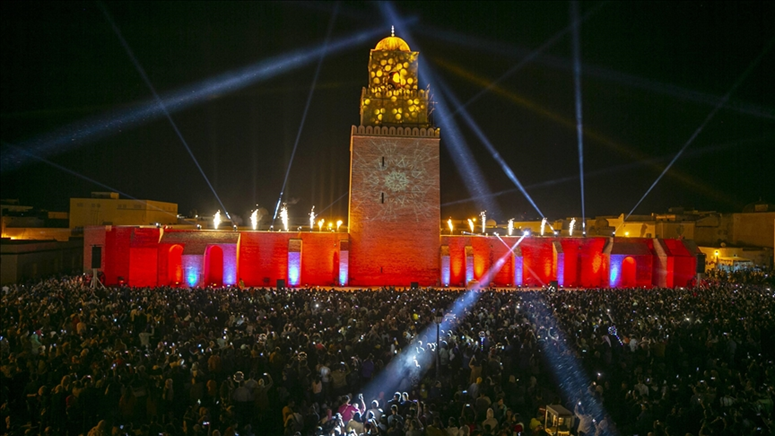
On the other hand, the Al-Azhar religious authority takes a positive stance on celebrating the Prophet’s birthday, in several fatwas issued over the years. It is true that the Qur’an and the hadiths do not explicitly refer to celebrating the birth. The emergence of imitation was delayed until the fourth century AH, but it is one of the manifestations of glorifying the Messenger and showing his love, according to those fatwas.
This opinion is considered prevalent among most Sunni commentators, because although birthday celebrations are not obligatory, they are not forbidden in their opinion, because the honorable birthday of the Prophet is a manifestation of divine mercy on humans, and because it is an expression of joy and love, and a combination of recitation of the Qur’an, the biography of the Prophet, and poems of praise.
Among the scholars and commentators are those who describe the celebration of the Prophet’s birthday as a “good innovation,” and that is the opinion of the scholar Ibn Hajar al-Asqalani (1371-1449). This is also the opinion of the scholar Jalal al-Din Abd al-Rahman al-Suyuti (1445-1505), who believes that it is “a good innovation for which its owner will be rewarded.”

Celebration lights in the Sudanese city of Omdurman in 2019
For the Shiite authorities, celebrating the Prophet’s birthday is an expression of love, honor and pride for the Prophet, and thus it does not introduce into the religion anything that is not from it.
Jurisprudential disagreement sometimes takes on political dimensions today, just as it did during Islamic history. With the rise of the Houthis in Yemen, celebrating the Prophet’s birthday has become more widespread there. On the other hand, the organization known as the Islamic State prevented the celebration of the birthday in the areas it controlled in Syria and Iraq.

Regardless of the opinion of religious scholars, celebrating the birth of Muhammad remains an established part of Arab popular culture, due to the social traditions associated with it on the one hand, and the poetic and artistic works that accompanied it as a form of honor. Who among us does not know the poem of the Prince of Poets, Ahmed Shawqi, “The Son of Guidance, and the Beings are Dia,” which was performed by Umm Kulthum to the tune of Riad Al-Sunbati?
Source: websites

